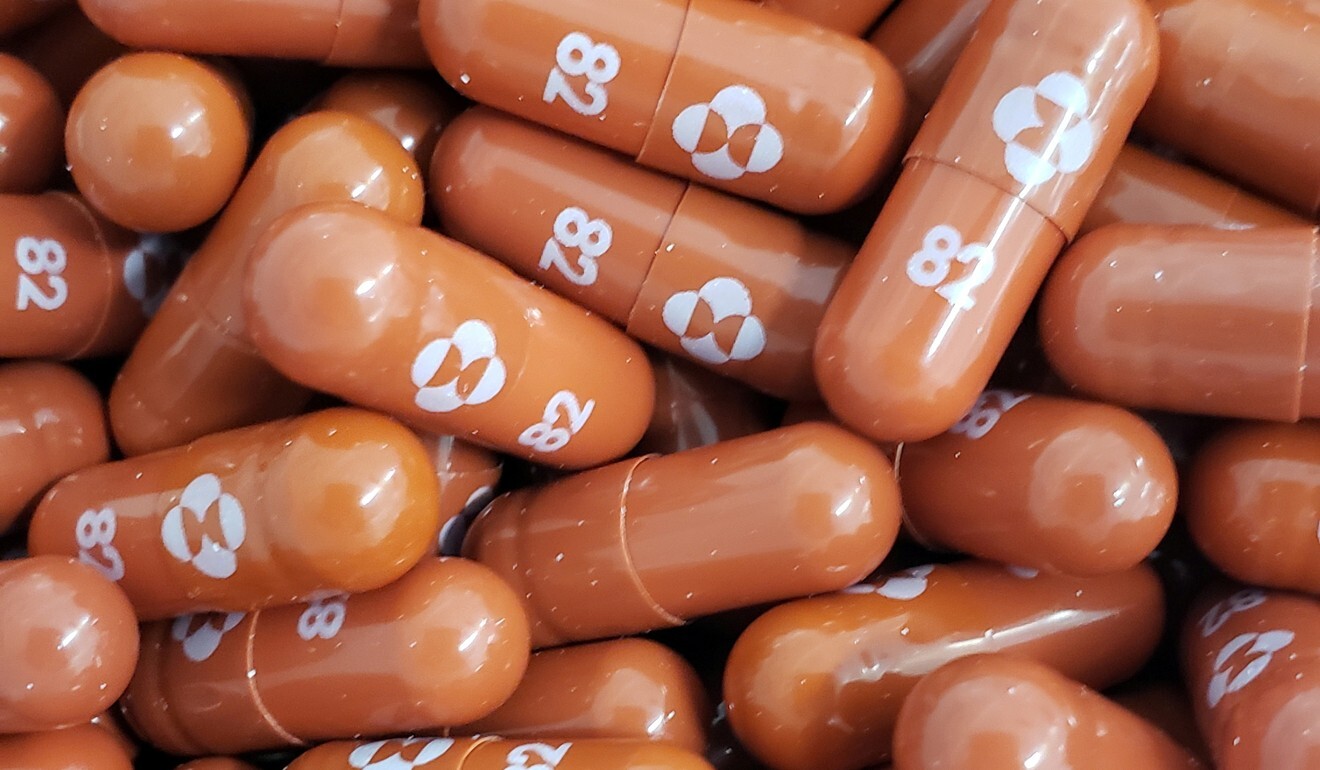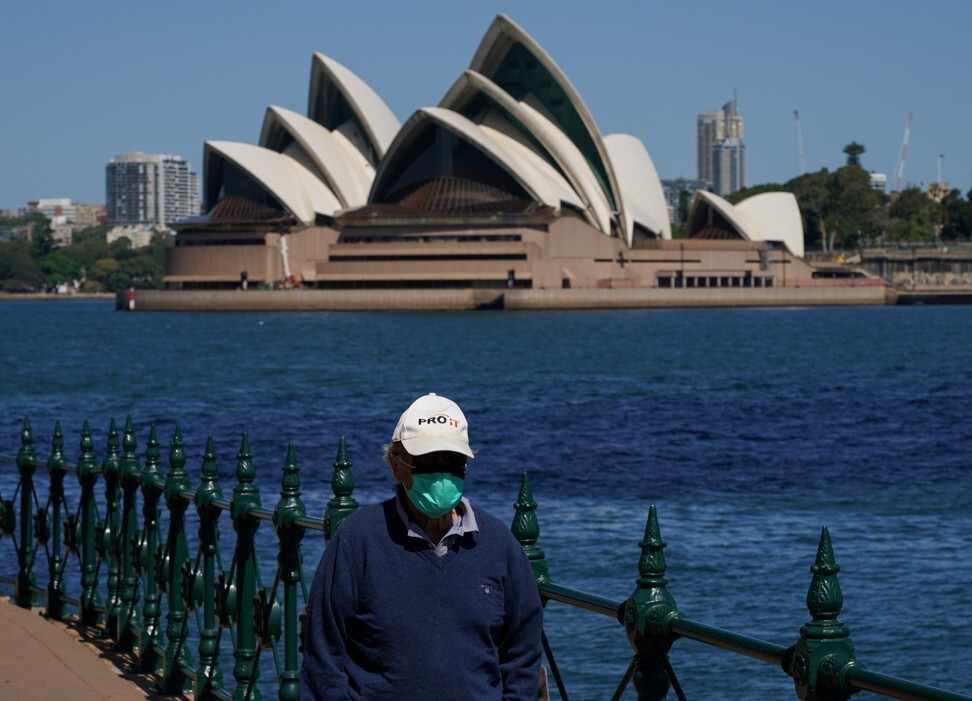
Coronavirus: Merck says deal with Singapore signed; South Korea soon to inoculate pregnant women
- Merck’s molnupiravir pill is designed to introduce errors into the genetic code of Covid-19
- Elsewhere, Australia’s cases in the virus epicentres are falling, while South Korea will soon take vaccine bookings from pregnant women
Merck on Wednesday announced it had entered into an agreement with Singapore to provide molnupiravir, an investigational antiviral drug to treat Covid-19, once it is authorised or approved.
Molnupiravir is designed to introduce errors into the genetic code of the virus and would be the first oral antiviral medication for Covid-19. Merck is seeking approval by the US Food and Drug Administration for the pill.
Singapore’s health ministry did not immediately respond to a request for confirmation of the Merck agreement.
Singapore’s Covid-19 cases could reach 10,000 a day in next fortnight
Pang Lai Li, the company’s managing director for Merck in Singapore and Malaysia, described the agreement as “another example of Singapore’s forward-looking strategy of pandemic management and the government’s commitment to investing in innovative medicines and vaccines to combat the pandemic”.
Australia has also bought the Merck pill, while Thailand, South Korea, Taiwan and Malaysia have been in talks to purchase it. The Philippines hopes its trial of the pill would allow it access.

The rush to order the drug comes after data from interim clinical trials released last Friday indicated it could reduce by about 50 per cent the likelihood of hospitalisation or death for patients at risk of severe disease from Covid-19.
Singapore reported a record 3,577 new coronavirus cases on Wednesday, as it deals with its biggest outbreak so far. It has vaccinated more than 80 per cent of its people against Covid-19.
As the country seeks to encourage boosters, several private clinics in Singapore are seeing a demand for Sinovac and Sinopharm vaccines, amid fears by some residents over the side effects from a third dose of an mRNA shot, the Straits Times reported.
Experts are still studying the possibility of mixing vaccines for the booster dose.
South Korea to vaccinate pregnant women
Health authorities see pregnant mothers as key to the campaign and sought to drum up participation through public notices and news conferences saying they have a greater possibility of serious illness and death if infected with Covid-19.
Pregnant women from Friday are eligible to sign up for inoculation with Pfizer or Moderna vaccines, according to the Korea Disease Control and Prevention Agency (KDCA).
Will Asia accept vaccine mandates like Biden’s for the US?
“The vaccines are safe for pregnant women and can meaningfully decrease their risks of contracting Covid-19 and becoming critically ill,” KDCA director Jeong Eun-kyeong told a public briefing on Monday.
Of the 731 pregnant women infected with the virus in South Korea as of August, about 2 per cent of them developed serious illnesses, more than six times that of women aged 20-45, according to the KDCA.
But officials have advised people with shorter than 12 weeks pregnancy to consult medical staff before getting a shot.
Some 54.5 of the country’s 52 million population and around 63 per cent of adults were fully vaccinated as of Tuesday, and authorities aim to complete vaccination for 80 per cent of all adults by the end of October.
Officials are also mapping out a plan on how to live more normally with Covid-19.
Australia’s infections drop in epicentres
A total of 1,420 new locally acquired cases were reported in Victoria, most of them in the state capital Melbourne, down from a record 1,763 on Tuesday. Eleven new deaths were registered, the state’s highest daily number in the current outbreak.
Melbourne has been in lockdown since August 5 as Australia grapples with a third wave of infections fuelled by the Delta variant that has also put millions in Sydney, its largest city, and the nation’s capital Canberra, under strict stay-home rules. Most other states have zero or low cases.
Australia approves Sinovac shots ahead of border reopening
Victorian authorities plan to relax some tough restrictions once 70 per cent of the adult population is fully vaccinated, expected in late October. More curbs will be eased at 80 per cent.
In neighbouring New South Wales, Sydney is due to exit lockdown on October 11, after a rapid vaccination programme. About 68 per cent of the adult population has been fully vaccinated in the state, with the number expected to reach 70 per cent by Thursday. Daily infections fell below 600 for the first time in more than seven weeks on Wednesday.
Newly elected state Premier Dominic Perrottet said he would “raise a number of issues” about the state’s reopening plans at a meeting with health officials later on Wednesday.
“Whatever we do, we want to make sure it is done in a way that keeps people safe … but ultimately, it is important to get people back into town because we want to breathe life into Sydney,” Perrottet told radio station 2GB.
Australia’s infection numbers are lower than many comparable countries, with around 117,800 cases and 1,379 deaths. Increased vaccination levels have kept the death rate in the current Delta flare-up below last year’s outbreaks.
Reporting by Reuters, TodayOnline,

